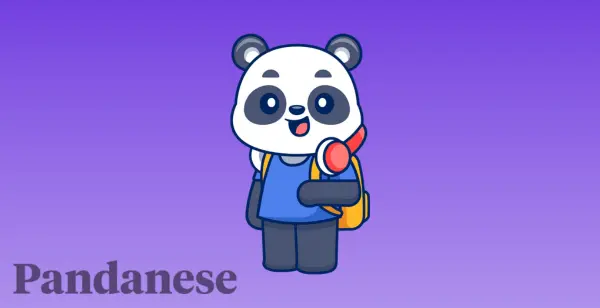
How to Say Congratulations in Chinese: A Handy Guide
Congratulations! When you achieve something noteworthy or begin a fresh phase in your life, saying "congratulations" is common.
Yet, "congratulations" does not always translate directly into every language. We have you covered for those interested in expressing heartfelt congratulations in Chinese.
For the many who ponder the phrase "congratulations in Chinese," here’s a detailed guide.
The most common ways to say congratulations in Chinese
1. 祝贺 (zhù hè)—the common way to say congratulation
Context: A common way to convey encouragement or congratulations. It is apt for accomplishments like graduation or job promotions.
Example: "祝贺你的晋升!" (zhù hè nǐ de jìn shēng!) - "Congratulations on your promotion!"
2. 恭喜 (gōng xǐ)—for special occasions
Context: Universal and can be used for most congratulatory occasions, especially life events like marriages or births.
Example: "恭喜你们的婚礼!" (gōng xǐ nǐ men de hūn lǐ!) - "Congratulations on your wedding!"
3. 新工作恭喜 (xīn gōng zuò gōng xǐ)—for when someone gets a new job
Context: Specifically for congratulating someone on their new job.
Example: "新工作恭喜, 希望你喜欢你的团队!" (xīn gōng zuò gōng xǐ, xī wàng nǐ xǐ huān nǐ de tuán duì!) - "Congratulations on the new job, hope you like your team!"
4. 新事业恭喜 (xīn shì yè gōng xǐ)—for anyone starting a new business
Context: Perfect for someone starting a new business or enterprise.
Example: "新事业恭喜,祝你成功!" (xīn shì yè gōng xǐ, zhù nǐ chéng gōng!) - "Congratulations on your new enterprise, wish you success!"
5. 你真棒 (nǐ zhēn bàng)—to share any personal achievement
Context: It is more informal and translates to "You are awesome!" Suitable when someone shares a personal achievement.
Example: "你赢了那个比赛?你真棒!" (nǐ yíng le nàgè bǐ sài? nǐ zhēn bàng!) - "You won that competition? You are awesome!"
6. 太好了 (tài hǎo le)—for any good news
Context: A casual phrase meaning "That is great!" or "Awesome!" Use it for general good news.
Example: "你们要去旅行?太好了!" (nǐ men yào qù lǚ xíng? tài hǎo le!) - "You guys are going on a trip? That is great!"
7. 我为你感到骄傲 (wǒ wèi nǐ gǎndào jiāo'ào)—for heartfelt congratulations
Context: Translates to "I am proud of you." Expresses heartfelt congratulations and is apt for close friends and relationships.
Example: "听说你得了奖学金, 我为你感到骄傲!" (tīng shuō nǐ dé le jiǎng xué jīn, wǒ wèi nǐ gǎndào jiāo'ào!) - "Heard you got the scholarship, I am proud of you!"
8. 我替你感到高兴 (wǒ tì nǐ gǎndào gāoxìng)—to express genuine happiness
Context: Translates to "I am happy for you." Often used to express genuine happiness or delight for someone else's achievements or good fortune.
Example: "听说你要结婚了,我替你感到高兴!" (tīng shuō nǐ yào jiéhūn le, wǒ tì nǐ gǎndào gāoxìng!) - "Heard you are getting married, I am happy for you!"
The nuances of saying congratulations in Chinese
When expressing congratulations in Chinese, be it a happy graduation or happy marriage sentiment, it is paramount to know your phrasing. It is an amazing opportunity to bridge cultures and genuinely commend success.
Importance of formality and informality
When trying to congratulate a Chinese person, understanding the level of formality required is essential.
If you are too casual in a formal setting, you risk the chance of the other person "losing face" or miàn zi. This concept is a crucial cultural aspect in China that revolves around dignity and respect.
For instance, telling someone "你真棒" (nǐ zhēn bàng) might be fantastic if it is a close friend who has shared great news about an awesome job. However, for someone older or in a more formal setting, opting for the more standard "恭喜" (gōng xǐ) might be more appropriate.
Additionally, use the fist-and-palm salute when saying congratulations in Chinese in a formal setting. Check out this video below to see how it is done.
Fist-and-palm salute for greeting and formal occasionsRegional variations
China's linguistic landscape is diverse, with dialects varying across regions. Mandarin, though standard, is one among many. For instance, in southern China's Cantonese, "恭喜" is "gung hei." Knowing these nuances, especially considering the regional background of the person you're speaking to, can add depth to your congratulations.
Adding depth with complementary phrases
Adding a follow-up comment or question can deepen the connection besides the primary congratulatory expressions. For example, after saying "恭喜" for a wedding, asking about the wedding date or venue showcases your genuine interest. "什么时候结婚?" (shénme shíhòu jiéhūn?) means "When is the wedding?"
BONUS: Chinese vocabulary list related to congratulations
No. |
Chinese Hanzi |
Pinyin |
English meaning |
1 |
祝贺 |
zhù hè |
Congratulations |
2 |
恭喜 |
gōng xǐ |
Congratulations |
3 |
新工作恭喜 |
xīn gōng zuò gōng xǐ |
Congrats on your new job |
4 |
新事业恭喜 |
xīn shì yè gōng xǐ |
Congrats on your new venture |
5 |
你真棒 |
nǐ zhēn bàng |
You are awesome |
6 |
太好了 |
tài hǎo le |
That is great |
7 |
我为你感到骄傲 |
wǒ wèi nǐ gǎndào jiāo'ào |
I am proud of you |
8 |
我替你感到高兴 |
wǒ tì nǐ gǎndào gāoxìng |
I am happy for you |
Frequently asked questions
How do I congratulate someone on a specific occasion in Chinese?
Depending on the event, there are different ways to say congratulations in Chinese. For a job, you might say "新工作恭喜!" For a wedding, "恭喜结婚!".
Can I use English expressions ?
While some might understand, it is always more meaningful to use native phrases. Plus, it shows your effort and respect for the culture.
What should I avoid when congratulating in China?
Be wary of cultural nuances like "losing face" (miàn zi). It is crucial not to say anything embarrassing or overshadowing the person's achievement.
Are there other ways to express happiness for someone's success?
Absolutely! Beyond just "congratulations," phrases like "你真厉害" (You are awesome) or "太牛了/太给力了" (That is great) can be used.
Is it common for Chinese to congratulate people frequently?
Like everywhere, it depends on the individual. But it is common to express joy and pride in another's achievements.
Wrapping it up
Whether you are an English person trying to congratulate a friend in China or someone fascinated by languages, knowing how to say congratulations in Chinese is a heartwarming gesture. It is not just about the words; it is about the sentiment, the respect for culture, and the universal expression of joy.
Jing You is a Chinese native who grew up in the Fujian province and soaked in the Chinese culture while living with her grandparents. She later moved to Singapore to pursue further education. However, she has always been passionate about the Mandarin language despite being in an environment that speaks English predominantly. She was involved in multiple Mandarin and Chinese culture programmes in schools, and brought this passion forward by tutoring elementary school students Mandarin in her adulthood.
The easiest way to learn Chinese & build vocabulary

